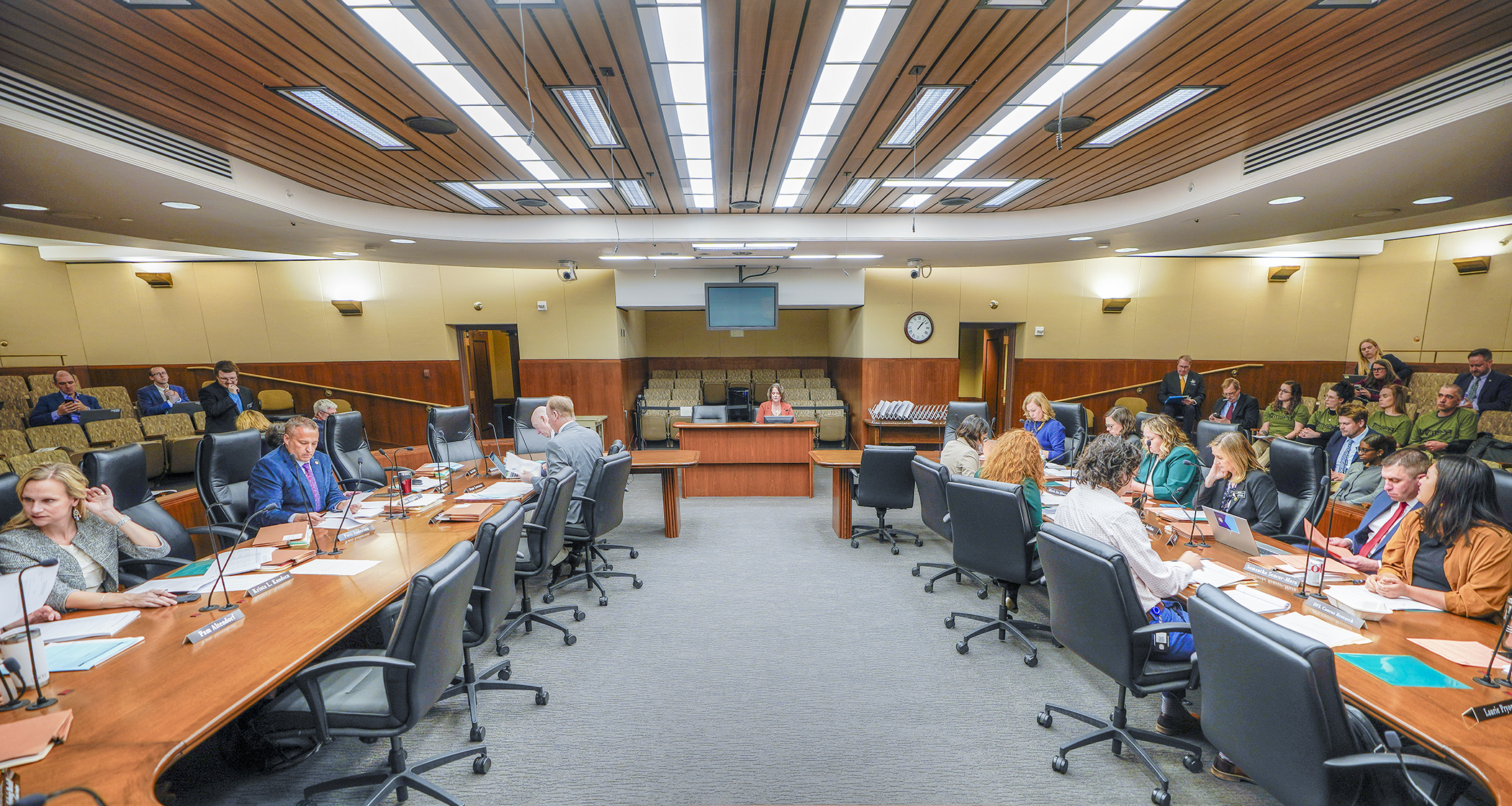Supplemental education finance bill would provide $33 million for READ Act

Public education received an appropriations increase of $2.26 billion, or 10.8% over base, in 2023.
Now, in a supplemental budget year, a wide-ranging education finance bill would appropriate $43 million more in fiscal year 2025.
The bill would, among other things, expand the voluntary pre-kindergarten program, create programs to investigate student attendance and truancy, and pay student teachers a stipend for their student teaching experience.
It would also provide a significant funding bump to the Minnesota Reading to Ensure Academic Development Act. The READ Act, which was signed into law in 2023 with the goal of having every child reading at or above grade level every year, would receive more than $33 million – with $31.37 million allocated to complete teacher training.
Rep. Cheryl Youakim (DFL-Hopkins) sponsors HF5237, as amended. The House Education Finance Committee received an overview of the funding package Monday, is scheduled to hear public testimony Tuesday and vote Wednesday.
[MORE: View the spreadsheet]
“This builds on the investments we made last session, provides our districts flexibility and funds for innovation, puts more teachers in our classrooms, keeps more kids in our classrooms, takes comprehensive look at some of the larger investments we made last session and brings more of our students’ voices to the Capitol,” Youakim said.
The bill includes a one-time appropriation of more than $2.7 million for the Professional Educators Licensing and Standards Board for information technology costs to be spent over three years, allowing teachers to take online rather than in-person licensing courses, aiding in teacher retention.
Voluntary pre-kindergarten expansion
The voluntary pre-kindergarten program has been popular with Minnesota parents since its introduction in 2016, and the bill would expand the program for the first time since 2017 by adding 5,200 seats.
The Legislature set aside $50 million last year to fund that expansion, but many of the changes in the bill are to cover other costs in fiscal year 2025. Appropriations include more money for the school breakfast and lunch programs. It would also adjust the equalizing factor for local optional revenue, increase the operating capital revenue equalizing factor and modify the general education aid appropriation by both the forecast adjustment and the amount necessary to cover the costs of the expansion.
[MORE: Governor’s supplemental K12 education budget]
Student attendance and truancy
A pilot program would be established to develop and implement strategies to improve student attendance, and help policymakers determine how to effectively support school district efforts to improve student attendance and engagement. The program would be funded with $3.3 million in fiscal year 2025, with nine school districts participating in the three-year program.
It would also establish a legislative study group to analyze issues related to student attendance and truancy, evaluate possible improvements and identify any statutory changes needed to implement recommendations. A report would be due to the Legislature by the end of this year.
Other proposed appropriations include:
- $7 million for paid student teacher pilot program grants;
- $1.5 million for the Promise Fellow program;
- $1.03 million for grants to four intermediate school districts for their special education registered apprenticeship program;
- $1 million for the University of Minnesota’s Center for Applied Research and Educational Development to collaborate with publishers of approved curriculum and intervention materials to improve cultural responsiveness;
- $750,000 for activities of the Minnesota Youth Council;
- $627,000 to the Department of Education for the health standards rulemaking process;
- $500,000 to develop paraprofessional training;
- $440,000 for a special education funding report;
- $117,000 for the English learner program task force; and
- $150,000 for civic education grants to the YMCA;
What’s in the bill?
The following are selected bills that have been incorporated in part or in whole into the education finance bill:
- HF1175 (Youakim)
- HF1348 (Tabke)
- HF2696 (Greenman)
- HF3372 (Clardy)
- HF3534 (Sencer-Mura)
- HF3682 (Kotyza-Witthuhn)
- HF3722 (Hicks)
- HF3744 (Edelson)
- HF3780 (Hicks)
- HF3803 (Norris)
- HF3822 (Hill)
- HF3827 (Keeler)
- HF3983 (Bennett)
- HF3998 (Clardy)
- HF4232 (Sencer-Mura)
- HF4361 (Hill)
- HF4827 (Youakim)
- HF4848 (Youakim)
- HF4912 (Sencer-Mura)
- HF5007 (Berg)
- HF5326 (Youakim)
Related Articles
Search Session Daily
Advanced Search OptionsPriority Dailies
Legislative leaders set 2026 committee deadlines
By Lisa Kaczke Legislative leaders on Tuesday officially set the timeline for getting bills through the committee process during the upcoming 2026 session.
Here are the three deadlines for...
Legislative leaders on Tuesday officially set the timeline for getting bills through the committee process during the upcoming 2026 session.
Here are the three deadlines for...